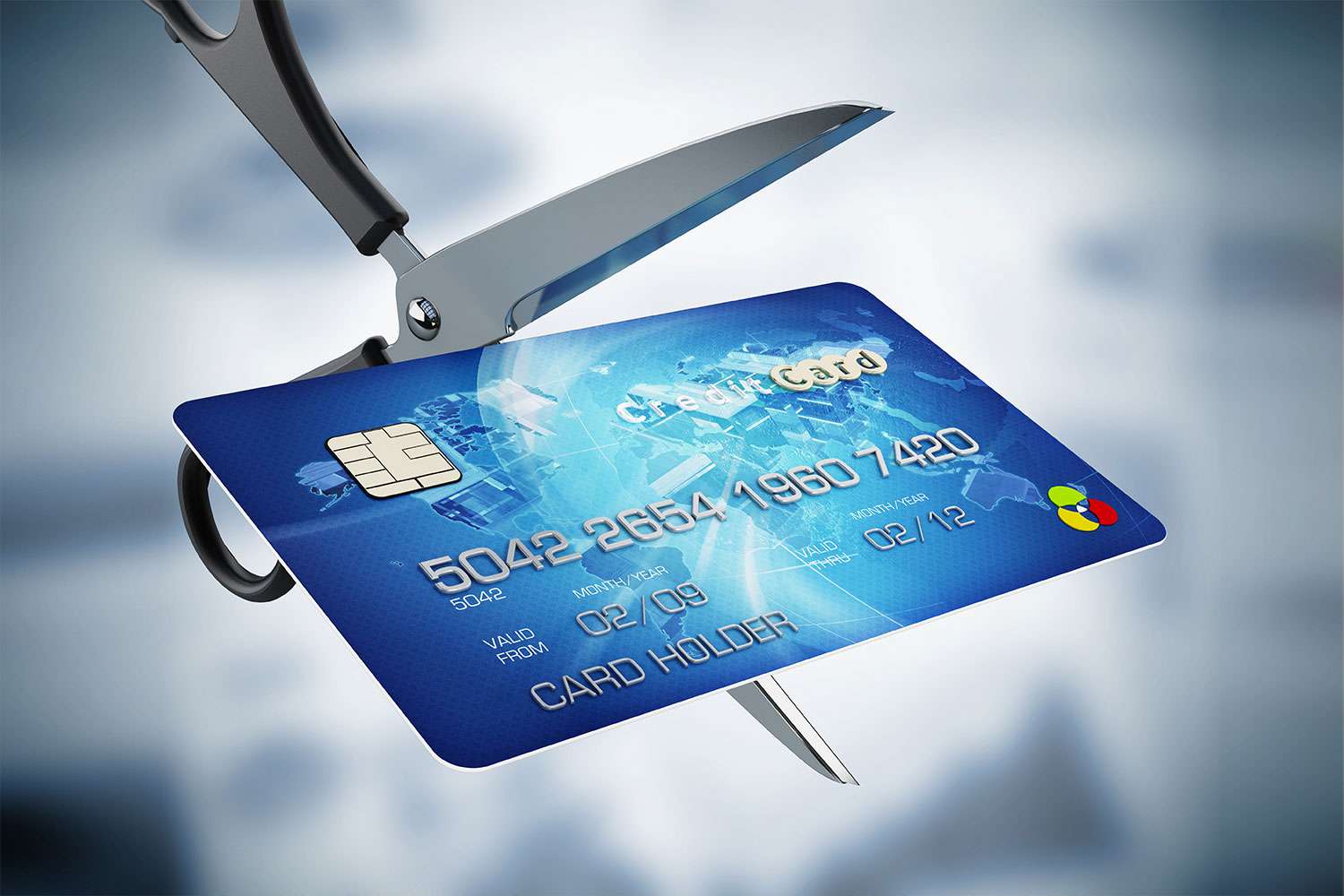Bank loans for credit card consolidation open the door to a simpler financial future, offering a streamlined approach to managing multiple high-interest credit card debts. By focusing on this solution, you can transform scattered balances into one manageable monthly payment, helping you regain control and potentially save money along the way.
This method involves borrowing a lump sum from a bank to pay off your outstanding credit card balances in full. The new loan typically features a lower interest rate and more structured repayment terms, making budgeting easier and reducing the stress often associated with juggling several payments. Understanding the ins and outs of bank loans for credit card consolidation can empower you to make informed choices tailored to your financial situation.
Introduction to Bank Loans for Credit Card Consolidation
Using a bank loan to consolidate credit card debt is a popular strategy among individuals looking to simplify their financial obligations and potentially save money on interest. Essentially, this method involves taking out a new loan from a bank and using those funds to pay off multiple credit card balances. Instead of juggling several payments, you end up with just one fixed monthly payment, ideally at a lower overall interest rate than your credit cards.
This approach comes with notable advantages, including streamlined payments and the possibility of reducing the amount paid in interest over time. On the flip side, there are also some risks, such as the temptation to accumulate new credit card debt and possible fees associated with the loan. Understanding both the benefits and drawbacks is key to making an informed decision.
The actual process is fairly straightforward. After being approved for a bank loan, the borrower receives a lump sum, which is then used to pay off existing credit card balances. From that point on, the borrower makes monthly payments on the new bank loan according to the agreed terms.
The Process of Using a Bank Loan for Credit Card Consolidation
Bank loans can provide structure and predictability for those grappling with high-interest credit card debt. Understanding the step-by-step process helps ensure a smoother experience.
- Review your current credit card balances and interest rates.
- Research loan options from banks, including personal loans and home equity loans.
- Apply for the loan, submitting required documentation such as proof of income, credit reports, and identification.
- If approved, receive the loan funds and immediately pay off all targeted credit card balances.
- Begin making monthly payments on the new loan, adhering to the repayment schedule set by the bank.
Eligibility for these loans typically depends on factors such as credit score, income, employment stability, and overall debt-to-income ratio. Applicants should be prepared to provide documentation like pay stubs, tax returns, and a list of debts to support their application.
| Loan Type | Interest Rate | Repayment Terms | Flexibility |
|---|---|---|---|
| Bank Personal Loan | 6% – 15% APR | 1 – 7 years, fixed | Medium (fixed payments) |
| Home Equity Loan | 4% – 9% APR | 5 – 20 years, fixed or variable | High (larger loan amounts) |
| Credit Card Balance Transfer | 0% (intro) – 23% APR | 6 – 24 months, then variable | High (introductory period) |
| Debt Management Plan | Varies (lowered with negotiation) | 3 – 5 years | Medium (requires agency involvement) |
Types of Bank Loans Used for Credit Card Consolidation: Bank Loans For Credit Card Consolidation
Banks offer several types of loans that can be used for consolidating credit card debt. Each option has unique characteristics, pros, and cons that should be weighed carefully.
Main Loan Types for Consolidation

The most common bank loans for credit card consolidation include personal loans, home equity loans, and lines of credit. Here’s a breakdown of each:
- Personal Loans: Unsecured loans with fixed rates and terms, commonly used for debt consolidation due to their accessibility and predictable payments.
- Home Equity Loans: Secured loans that use your home as collateral, often offering lower rates and larger borrowing limits, but with added risk.
- Lines of Credit: Flexible borrowing options that allow you to draw funds as needed, potentially at variable rates; can be secured or unsecured.
Each loan type comes with its own advantages and disadvantages:
-
Personal Loans
- Pros: No collateral required, predictable monthly payments, fast approval times.
- Cons: May have higher interest rates for lower credit scores, loan amounts are limited by income and credit.
-
Home Equity Loans
- Pros: Lower interest rates, larger loan amounts, possible tax-deductible interest.
- Cons: Puts your home at risk, longer application process, closing costs may apply.
-
Lines of Credit
- Pros: Flexibility to borrow what you need when you need it, reusable credit line.
- Cons: Variable interest rates, risk of overspending, may require collateral.
Here are some practical scenarios to illustrate how each loan type can be used:
- Personal Loan Example: Sarah has four credit cards totaling $15,000 at an average interest rate of 21%. She applies for a $15,000 personal loan at 9% interest over four years. By consolidating, she reduces her monthly payment and saves thousands in interest.
- Home Equity Loan Example: Mike owns a home and uses $30,000 of his equity to pay off high-interest cards. His new loan has a 6% rate over 10 years, giving him a lower monthly payment but tying the debt to his home.
- Line of Credit Example: Emma qualifies for a $10,000 line of credit with her bank at a variable rate. She draws only what she needs to pay off her two largest credit cards and pays interest only on the outstanding balance, offering flexibility for future needs.
Interest Rates and Terms
Interest rates and terms play a crucial role in determining whether a bank loan for consolidation will truly save you money. Banks set loan interest rates based on factors such as your credit score, current income, existing debt, and the type of loan you’re applying for.
How Interest Rates and Loan Terms Are Determined, Bank loans for credit card consolidation

Lenders assess your credit profile to estimate risk. Borrowers with strong credit histories typically qualify for lower rates, while those with credit challenges might see higher rates or even be denied. The term length also affects the total cost—a longer term means lower monthly payments but more interest paid over time.
Common consolidation loan terms from banks range from 1 to 7 years for personal loans, and can stretch up to 20 years for home equity products. Selecting the right balance between rate and term length is essential for affordability and savings.
Below is a sample table showing how rates, term lengths, monthly payments, and total interest paid can vary.
| Sample Rate (APR) | Term Length | Monthly Payment (on $10,000) | Total Interest Paid |
|---|---|---|---|
| 7% | 3 years | $308 | $1,088 |
| 9% | 5 years | $207 | $2,418 |
| 12% | 7 years | $176 | $4,784 |
| 6% | 10 years (home equity) | $111 | $3,323 |
Choosing the loan with the lowest total interest paid, while keeping payments affordable, is the best way to maximize consolidation benefits.
Summary

Exploring bank loans for credit card consolidation reveals a practical path to financial clarity and peace of mind. By weighing the benefits and drawbacks, comparing options, and preparing carefully, you can choose the right approach for your needs. With the right strategy, consolidating your credit card debt with a bank loan could be your first step toward long-term financial stability.
Questions Often Asked
Will applying for a bank loan hurt my credit score?
Applying for a bank loan may cause a small, temporary dip in your credit score due to the hard inquiry, but responsible use and on-time payments can improve your score over time.
How long does it take to get approved for a bank loan for debt consolidation?
Approval times vary by lender, but most banks process applications within a few business days to a week once all required documentation is provided.
Can I consolidate credit card debts from different banks?
Yes, you can use a bank loan to pay off credit cards from multiple issuers, allowing you to combine several balances into one payment.
Are there fees associated with using a bank loan for credit card consolidation?
Some banks may charge origination fees or prepayment penalties, so it’s important to review the loan agreement and ask about any additional costs before proceeding.
What happens if I miss a payment on my consolidation loan?
Missing a payment can result in late fees, damage to your credit score, and higher interest costs, so it’s important to budget carefully and contact your lender if you have difficulty making payments.
